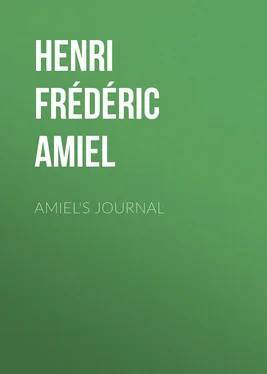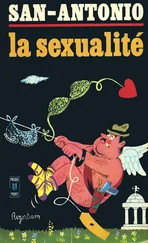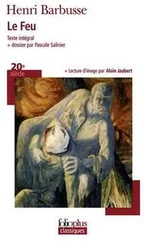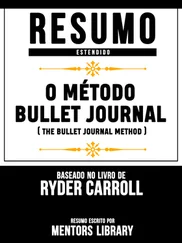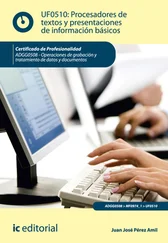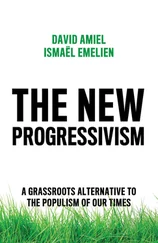Henri Frédéric Amiel - Amiel's Journal
Здесь есть возможность читать онлайн «Henri Frédéric Amiel - Amiel's Journal» — ознакомительный отрывок электронной книги совершенно бесплатно, а после прочтения отрывка купить полную версию. В некоторых случаях можно слушать аудио, скачать через торрент в формате fb2 и присутствует краткое содержание. Издательство: Иностранный паблик, Жанр: literature_19, foreign_antique, foreign_prose, Зарубежные любовные романы, на английском языке. Описание произведения, (предисловие) а так же отзывы посетителей доступны на портале библиотеки ЛибКат.
- Название:Amiel's Journal
- Автор:
- Издательство:Иностранный паблик
- Жанр:
- Год:неизвестен
- ISBN:нет данных
- Рейтинг книги:5 / 5. Голосов: 1
-
Избранное:Добавить в избранное
- Отзывы:
-
Ваша оценка:
- 100
- 1
- 2
- 3
- 4
- 5
Amiel's Journal: краткое содержание, описание и аннотация
Предлагаем к чтению аннотацию, описание, краткое содержание или предисловие (зависит от того, что написал сам автор книги «Amiel's Journal»). Если вы не нашли необходимую информацию о книге — напишите в комментариях, мы постараемся отыскать её.
Amiel's Journal — читать онлайн ознакомительный отрывок
Ниже представлен текст книги, разбитый по страницам. Система сохранения места последней прочитанной страницы, позволяет с удобством читать онлайн бесплатно книгу «Amiel's Journal», без необходимости каждый раз заново искать на чём Вы остановились. Поставьте закладку, и сможете в любой момент перейти на страницу, на которой закончили чтение.
Интервал:
Закладка:
December 26, 1852. (Sunday.)—If I reject many portions of our theology and of our church system, it is that I may the better reach the Christ himself. My philosophy allows me this. It does not state the dilemma as one of religion or philosophy, but as one of religion accepted or experienced, understood or not understood. For me philosophy is a manner of apprehending things, a mode of perception of reality. It does not create nature, man or God, but it finds them and seeks to understand them. Philosophy is consciousness taking account of itself with all that it contains. Now consciousness may contain a new life—the facts of regeneration and of salvation, that is to say, Christian experience. The understanding of the Christian consciousness is an integral part of philosophy, as the Christian consciousness is a leading form of religious consciousness, and religious consciousness an essential form of consciousness.
An error is the more dangerous in proportion to the degree of truth which it contains.
Look twice, if what you want is a just conception; look once, if what you want is a sense of beauty.
A man only understands what is akin to something already existing in himself.
Common sense is the measure of the possible; it is composed of experience and prevision; it is calculation applied to life.
The wealth of each mind is proportioned to the number and to the precision of its categories and its points of view.
To feel himself freer than his neighbor is the reward of the critic.
Modesty ( pudeur ) is always the sign and safeguard of a mystery. It is explained by its contrary—profanation. Shyness or modesty is, in truth, the half-conscious sense of a secret of nature or of the soul too intimately individual to be given or surrendered. It is exchanged . To surrender what is most profound and mysterious in one’s being and personality at any price less than that of absolute reciprocity is profanation.
January 6, 1853.—Self-government with tenderness—here you have the condition of all authority over children. The child must discover in us no passion, no weakness of which he can make use; he must feel himself powerless to deceive or to trouble us; then he will recognize in us his natural superiors, and he will attach a special value to our kindness, because he will respect it. The child who can rouse in us anger, or impatience, or excitement, feels himself stronger than we, and a child only respects strength. The mother should consider herself as her child’s sun, a changeless and ever radiant world, whither the small restless creature, quick at tears and laughter, light, fickle, passionate, full of storms, may come for fresh stores of light, warmth, and electricity, of calm and of courage. The mother represents goodness, providence, law; that is to say, the divinity, under that form of it which is accessible to childhood. If she is herself passionate, she will inculcate on her child a capricious and despotic God, or even several discordant gods. The religion of a child depends on what its mother and its father are, and not on what they say. The inner and unconscious ideal which guides their life is precisely what touches the child; their words, their remonstrances, their punishments, their bursts of feeling even, are for him merely thunder and comedy; what they worship, this it is which his instinct divines and reflects.
The child sees what we are, behind what we wish to be. Hence his reputation as a physiognomist. He extends his power as far as he can with each of us; he is the most subtle of diplomatists. Unconsciously he passes under the influence of each person about him, and reflects it while transforming it after his own nature. He is a magnifying mirror. This is why the first principle of education is: train yourself; and the first rule to follow if you wish to possess yourself of a child’s will is: master your own.
February 5, 1853 (seven o’clock in the morning).—I am always astonished at the difference between one’s inward mood of the evening and that of the morning. The passions which are dominant in the evening, in the morning leave the field free for the contemplative part of the soul. Our whole being, irritated and overstrung by the nervous excitement of the day, arrives in the evening at the culminating point of its human vitality; the same being, tranquilized by the calm of sleep, is in the morning nearer heaven. We should weigh a resolution in the two balances, and examine an idea under the two lights, if we wish to minimize the chances of error by taking the average of our daily oscillations. Our inner life describes regular curves, barometical curves, as it were, independent of the accidental disturbances which the storms of sentiment and passion may raise in us. Every soul has its climate, or rather, is a climate; it has, so to speak, its own meteorology in the general meteorology of the soul. Psychology, therefore, cannot be complete so long as the physiology of our planet is itself incomplete—that science to which we give nowadays the insufficient name of physics of the globe.
I became conscious this morning that what appears to us impossible is often an impossibility altogether subjective. Our mind, under the action of the passions, produces by a strange mirage gigantic obstacles, mountains or abysses, which stop us short. Breathe upon the passion and the phantasmagoria will vanish. This power of mirage, by which we are able to delude and fascinate ourselves, is a moral phenomenon worthy of attentive study. We make for ourselves, in truth, our own spiritual world monsters, chimeras, angels, we make objective what ferments in us. All is marvelous for the poet; all is divine for the saint; all is great for the hero; all is wretched, miserable, ugly, and bad for the base and sordid soul. The bad man creates around him a pandemonium, the artist, an Olympus, the elect soul, a paradise, which each of them sees for himself alone. We are all visionaries, and what we see is our soul in things. We reward ourselves and punish ourselves without knowing it, so that all appears to change when we change.
The soul is essentially active, and the activity of which we are conscious is but a part of our activity, and voluntary activity is but a part of our conscious activity. Here we have the basis of a whole psychology and system of morals. Man reproducing the world, surrounding himself with a nature which is the objective rendering of his spiritual nature, rewarding and punishing himself; the universe identical with the divine nature, and the nature of the perfect spirit only becoming understood according to the measure of our perfection; intuition the recompense of inward purity; science as the result of goodness; in short, a new phenomenology more complete and more moral, in which the total soul of things becomes spirit. This shall perhaps be my subject for my summer lectures. How much is contained in it! the whole domain of inner education, all that is mysterious in our life, the relation of nature to spirit, of God and all other beings to man, the repetition in miniature of the cosmogony, mythology, theology, and history of the universe, the evolution of mind, in a word the problem of problems into which I have often plunged but from which finite things, details, minutiae, have turned me back a thousand times. I return to the brink of the great abyss with the clear perception that here lies the problem of science, that to sound it is a duty, that God hides Himself only in light and love, that He calls upon us to become spirits, to possess ourselves and to possess Him in the measure of our strength and that it is our incredulity, our spiritual cowardice, which is our infirmity and weakness.
Dante, gazing into the three worlds with their divers heavens, saw under the form of an image what I would fain seize under a purer form. But he was a poet, and I shall only be a philosopher. The poet makes himself understood by human generations and by the crowd; the philosopher addresses himself only to a few rare minds. The day has broken. It brings with it dispersion of thought in action. I feel myself de-magnetized, pure clairvoyance gives place to study, and the ethereal depth of the heaven of contemplation vanishes before the glitter of finite things. Is it to be regretted? No. But it proves that the hours most apt for philosophical thought are those which precede the dawn.
Читать дальшеИнтервал:
Закладка:
Похожие книги на «Amiel's Journal»
Представляем Вашему вниманию похожие книги на «Amiel's Journal» списком для выбора. Мы отобрали схожую по названию и смыслу литературу в надежде предоставить читателям больше вариантов отыскать новые, интересные, ещё непрочитанные произведения.
Обсуждение, отзывы о книге «Amiel's Journal» и просто собственные мнения читателей. Оставьте ваши комментарии, напишите, что Вы думаете о произведении, его смысле или главных героях. Укажите что конкретно понравилось, а что нет, и почему Вы так считаете.
